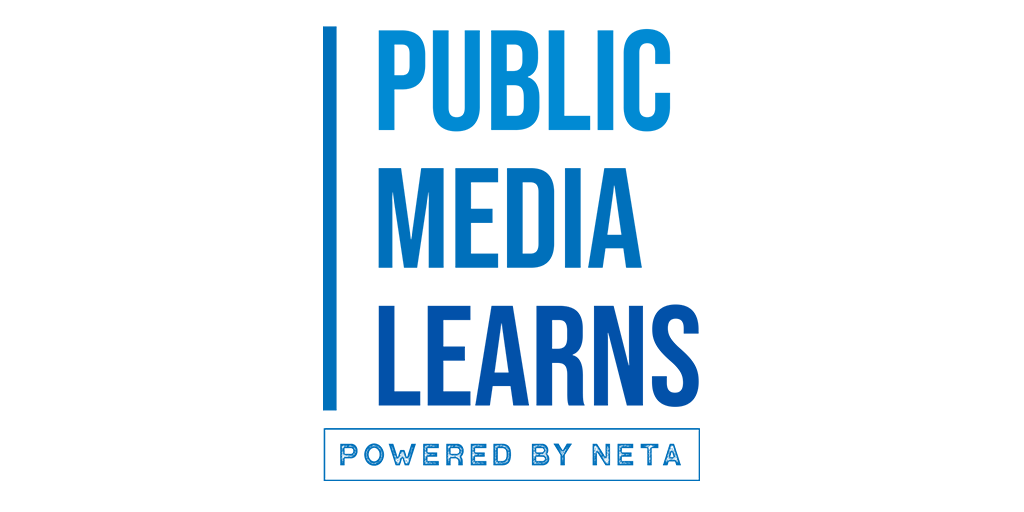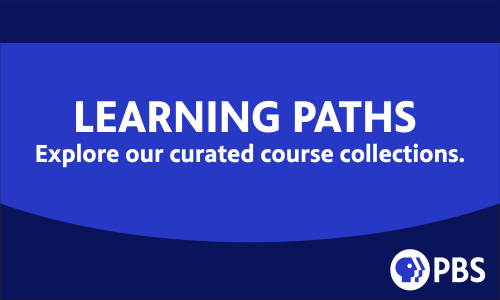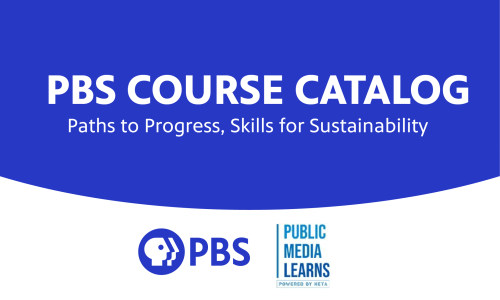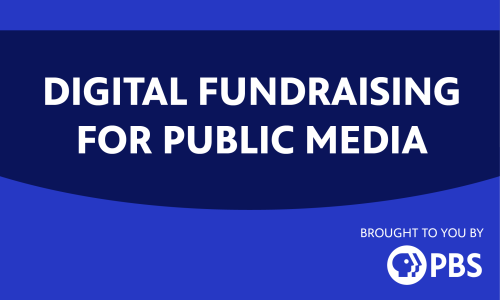
Public Media Learns
 Public Media Learns (PML) is the latest tool essential for everyone in public media, no matter their area of discipline. PML offers a collaborative space for employees of our member stations to experience community, share ideas, and expand the skills needed to further the mission of public media: education.
Public Media Learns (PML) is the latest tool essential for everyone in public media, no matter their area of discipline. PML offers a collaborative space for employees of our member stations to experience community, share ideas, and expand the skills needed to further the mission of public media: education.
Public Media Learns is the home of professional development courses from throughout the system, community spaces for our Peer Learning Communities, and the NETA webinar archives.
Do you have a course idea you'd like to share with members of public media? Use this form to propose your ideas.
Newest Courses

Are you interested in taking a course from the PBS Course Catalog but are unsure of where to start? You can now participate in a learning path, a collection of courses aimed at helping you align station resources with community needs, foster collaboration within your teams, prioritize audiences, and embrace proactive project planning. With a keen focus on data-driven decision-making, innovative fundraising strategies, and cross-platform content strategies, these paths promise to guide you through mastering today's media landscape.
In addition to these learning paths, you can now enroll in two new courses: From Multiplatform To Omniplatform and What You Need To Know About Goal-Setting. These additions to our course catalog are designed to empower PBS member station staff with new knowledge and tools.
Access learning paths, new courses, and more through the PBS Course Catalog.

PBS and NETA are thrilled to announce the launch of our latest lineup of self-paced courses, each crafted to equip you with the skills and knowledge needed to excel:
- Introduction to Project Planning: Gain the skills to initiate, plan, execute, monitor, control, and successfully close projects.
- Collaborative Excellence: Learn strategies for developing self and group awareness to enhance your team building skills.
- Business Tools: Utilize popular business tools to create practical strategies for organizational growth.
- Integrated Marketing: Discover the art of balancing social media, public relations, and advertising to enhance your marketing efficacy and audience engagement.
Why Choose Our Courses?
- Developed by public media experts.
- Gain insights from stations across the system.
- Self-paced online courses for flexibility.
Access these courses and more through the PBS Course Catalog.

In this comprehensive self-paced course, you'll learn about an array of topics, providing you with valuable insights and practical skills designed to meet your station needs. You’ll dive into the world of online fundraising campaigns, exploring different campaign types and their objectives, creating annual program calendars that will keep your efforts organized and aligned with your goals throughout the year, and evaluating campaign metrics. You’ll also hear examples from diverse stations and gain access to a variety of useful resources.
Whether you're new to fundraising or looking to enhance your digital strategy, our course is designed for professionals at all levels. Our expert facilitator, Jen Newmeyer, senior director of digital fundraising strategy at PBS, will guide you through the six modules.
OBJECTIVE:
In this comprehensive self-paced course, you'll learn about a wide array of topics, providing you with valuable insights and practical skills to help you achieve your fundraising objectives.
What you'll gain:
- In-depth insights into digital campaign strategies,
- Effective planning with annual program calendars,
- And how to measure fundraising success through campaign metrics.
Access this course and more through the PBS Course Catalog.